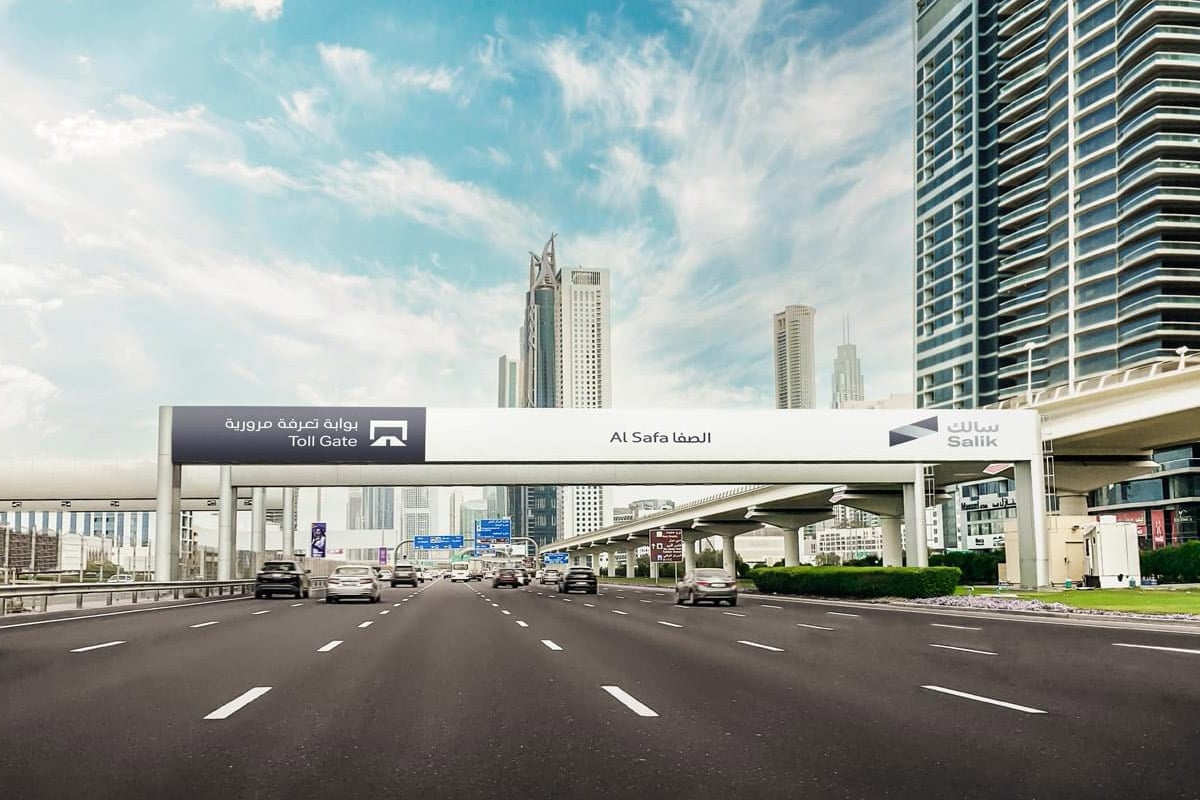The long-term effects of increased toll gates and dynamic pricing in Dubai may take up to a decade to fully manifest, according to an expert. Dr. Khaled Alawadi, an associate professor of Sustainable Urbanism at Khalifa University, explained, “There is a link between adding toll gates, improved air quality, and fewer accidents.” However, he added that to effectively reduce the number of vehicles on the road, residents need reliable alternatives in public transportation. “This shift may take anywhere from ten to twenty years to be truly felt in the city,” he said.
While the full impact may take time, some local residents are already noticing changes in traffic patterns since Salik introduced dynamic pricing and added two new toll gates in late 2024.
On January 31, 2025, Salik implemented dynamic toll pricing, where drivers pay Dh6 during peak hours (morning and evening) and Dh4 during off-peak hours on weekdays. Mohammed Iqbal, who works in Dubai Media City and begins his day at 6 a.m., is one of those benefiting from the new pricing structure. “I pass through two Salik gates, but since I travel before 6am, I get free trips one way,” he said, adding that he’s pleased with the changes.
With the new pricing system, toll charges are waived from 1 a.m. to 6 a.m., and on Sundays (excluding public holidays or special events), the fee is Dh4 throughout the day. “I’ve noticed an increase in traffic before 6 a.m. as people try to avoid the toll charges,” Mohammed observed.
Sanjana K.A., who lives in Karama, shared a similar experience. She recently benefited from the smooth traffic flow when running late to a meeting in Dubai Marina. “I used the Safa and Barsha toll gates, and the traffic was surprisingly smooth. I arrived ahead of schedule, but my Salik costs have gone up,” she said.
On the other hand, some areas are experiencing more congestion due to changes in traffic patterns caused by the toll system. Ayesha Nawaz, a resident of Dubai Creek Harbor, noted that there has been more traffic in her area as commuters avoid the toll on the Business Bay bridge. “In the evenings, the situation is tough. Many people take shortcuts through our community to reach Deira, Rashidiya, or Sharjah, resulting in longer travel times,” she said. “What used to take 5 to 8 minutes now takes 20 or more.”
Muhammad Anshah, from Jumeirah 1, also encountered heavy traffic on the first day of dynamic pricing. “It was a nightmare, with many drivers using Jumeirah roads to avoid the toll,” he said. “However, the traffic settled down after a day or two. It’s still heavier than before, but it’s not the same gridlock as on the first day.”
In November 2024, the Roads and Transport Authority (RTA) added two new toll gates in Business Bay and Safa, bringing the total to 10. The RTA’s aim is to encourage the use of public transportation and to redistribute traffic to alternative routes, such as Sheikh Mohammed bin Zayed Road, Dubai-Al Ain Road, Ras Al Khor Street, and Al Manama Street. Motorists are also encouraged to use alternative creek crossings like Infinity Bridge and Al Shindagha Tunnel.
Dr. Khaled noted that while Dubai has made significant progress in public transportation, more work is needed to reduce dependence on private vehicles. “My team studied mass transit systems in seven GCC cities, and Dubai ranked second, with nearly 78 percent of the population serviced by public transport,” he said. “Future metro lines are strategically positioned to accommodate a growing population.”
He also stressed the need for further studies on travel behavior, as understanding people’s travel patterns is key. “We lack data on how people travel. Some go between two fixed locations, while others make multiple stops throughout the day,” he explained. “If someone’s routine involves several destinations, they’re less likely to use public transport.”
Lastly, Dr. Khaled emphasized the importance of having transit zones located within 300 to 500 meters in high-density areas. “Given the hot climate, it’s not convenient to walk long distances. If there’s a transit zone just a seven-minute walk away, people are more likely to use public transportation,” he said, citing areas like Creek and Al Fahidi as examples where transit zones are well-placed and shaded.
























